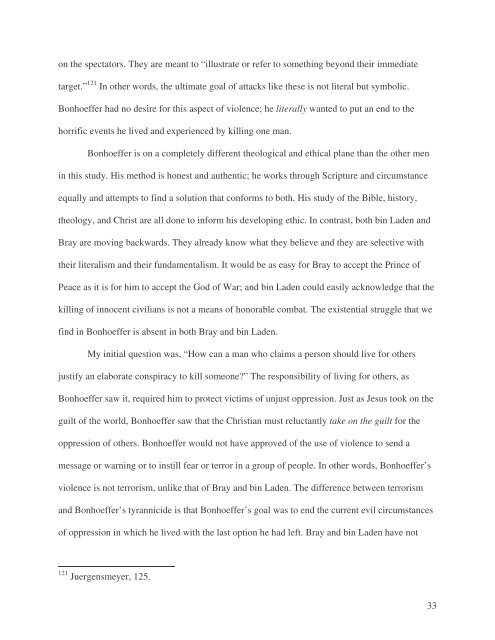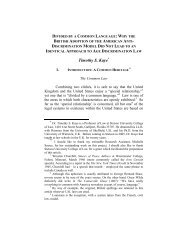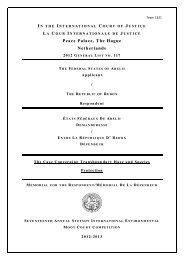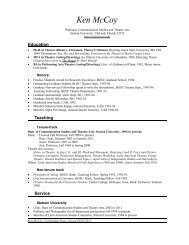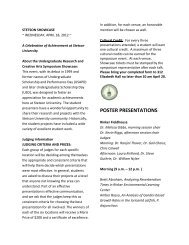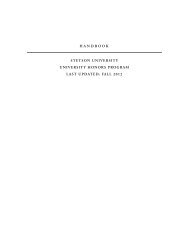Tiffany Huet Class of 2008 Justifying Violence: A ... - Stetson University
Tiffany Huet Class of 2008 Justifying Violence: A ... - Stetson University
Tiffany Huet Class of 2008 Justifying Violence: A ... - Stetson University
You also want an ePaper? Increase the reach of your titles
YUMPU automatically turns print PDFs into web optimized ePapers that Google loves.
on the spectators. They are meant to “illustrate or refer to something beyond their immediate<br />
target.” 121 In other words, the ultimate goal <strong>of</strong> attacks like these is not literal but symbolic.<br />
Bonhoeffer had no desire for this aspect <strong>of</strong> violence; he literally wanted to put an end to the<br />
horrific events he lived and experienced by killing one man.<br />
Bonhoeffer is on a completely different theological and ethical plane than the other men<br />
in this study. His method is honest and authentic; he works through Scripture and circumstance<br />
equally and attempts to find a solution that conforms to both. His study <strong>of</strong> the Bible, history,<br />
theology, and Christ are all done to inform his developing ethic. In contrast, both bin Laden and<br />
Bray are moving backwards. They already know what they believe and they are selective with<br />
their literalism and their fundamentalism. It would be as easy for Bray to accept the Prince <strong>of</strong><br />
Peace as it is for him to accept the God <strong>of</strong> War; and bin Laden could easily acknowledge that the<br />
killing <strong>of</strong> innocent civilians is not a means <strong>of</strong> honorable combat. The existential struggle that we<br />
find in Bonhoeffer is absent in both Bray and bin Laden.<br />
My initial question was, “How can a man who claims a person should live for others<br />
justify an elaborate conspiracy to kill someone?” The responsibility <strong>of</strong> living for others, as<br />
Bonhoeffer saw it, required him to protect victims <strong>of</strong> unjust oppression. Just as Jesus took on the<br />
guilt <strong>of</strong> the world, Bonhoeffer saw that the Christian must reluctantly take on the guilt for the<br />
oppression <strong>of</strong> others. Bonhoeffer would not have approved <strong>of</strong> the use <strong>of</strong> violence to send a<br />
message or warning or to instill fear or terror in a group <strong>of</strong> people. In other words, Bonhoeffer’s<br />
violence is not terrorism, unlike that <strong>of</strong> Bray and bin Laden. The difference between terrorism<br />
and Bonhoeffer’s tyrannicide is that Bonhoeffer’s goal was to end the current evil circumstances<br />
<strong>of</strong> oppression in which he lived with the last option he had left. Bray and bin Laden have not<br />
121 Juergensmeyer, 125.<br />
33


